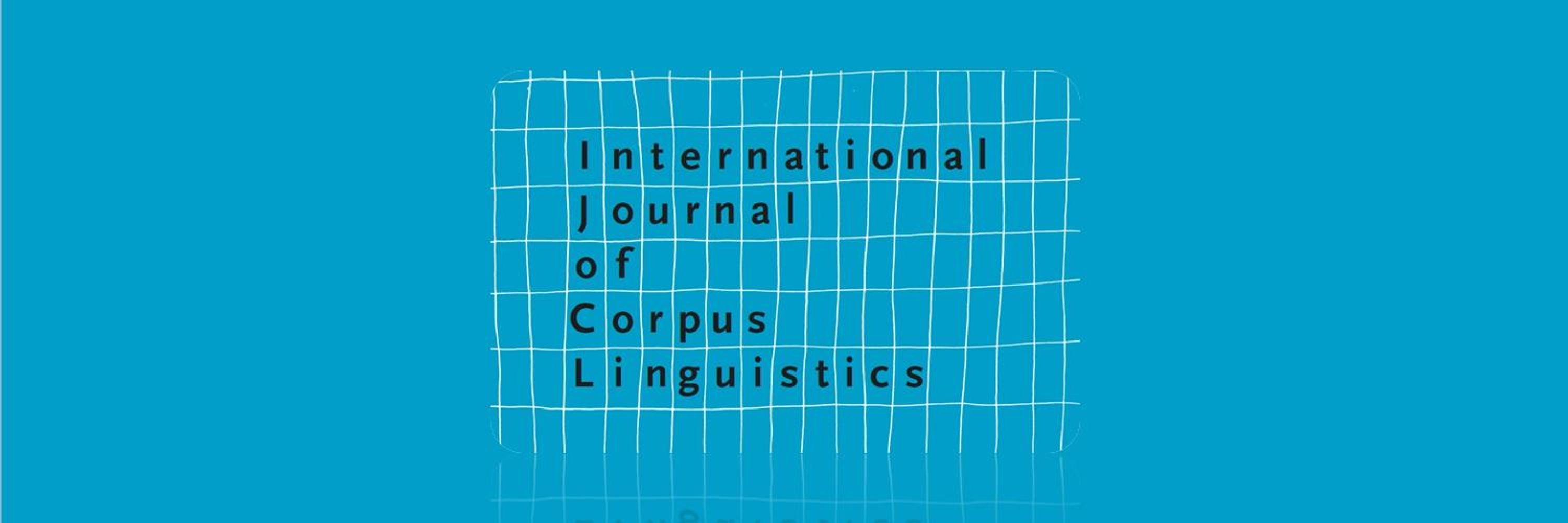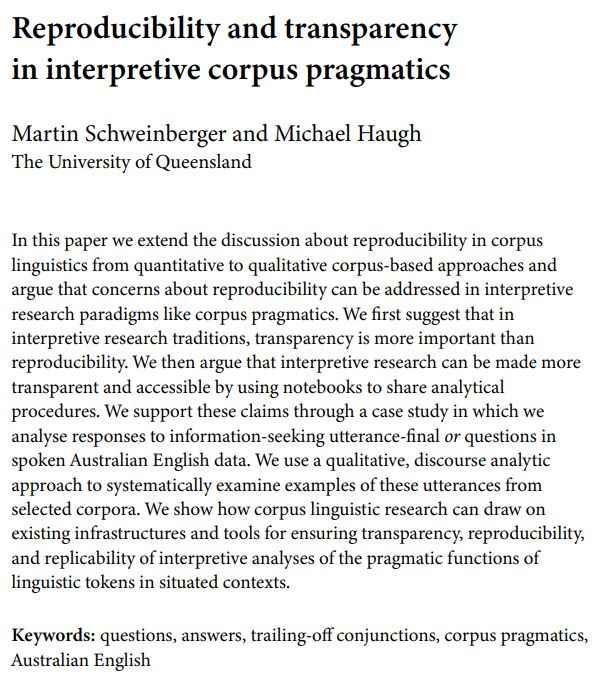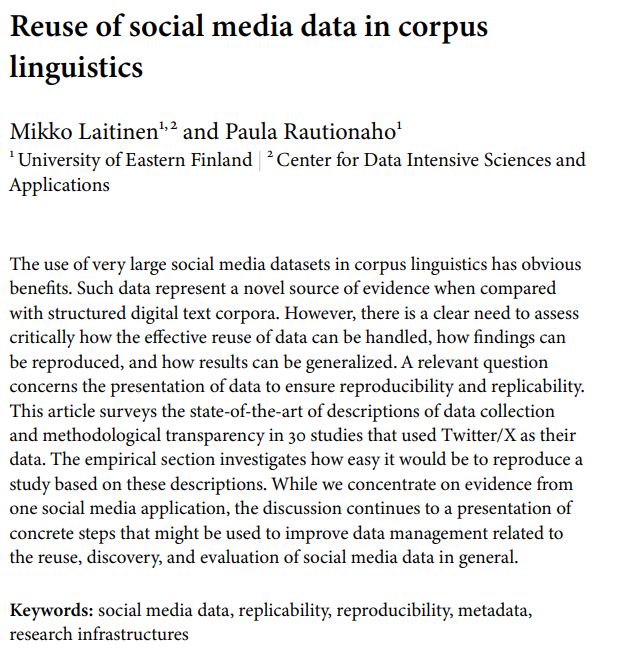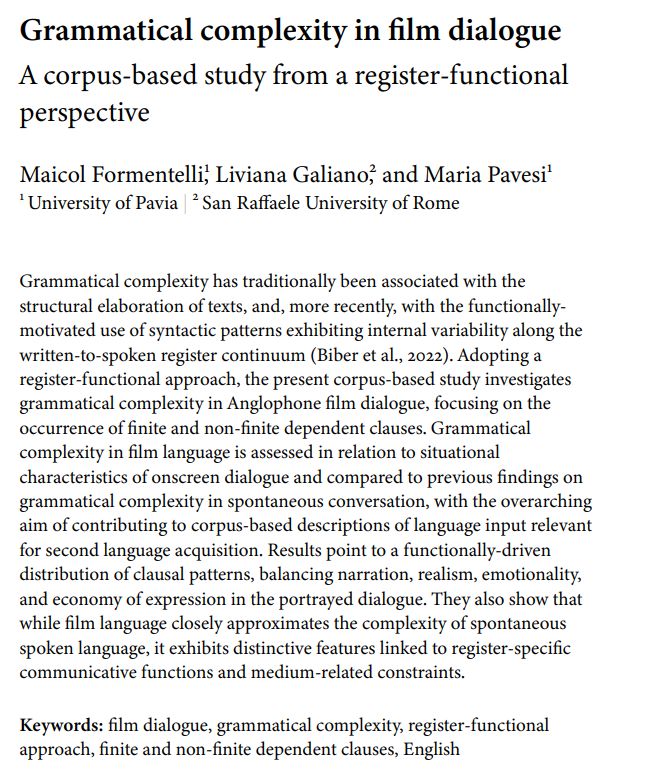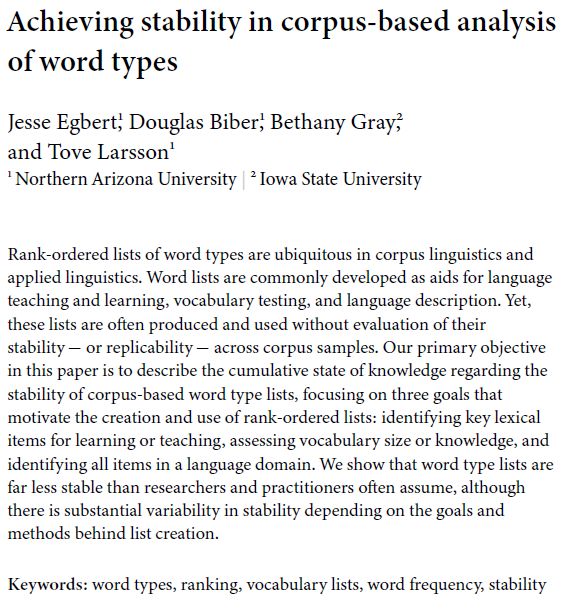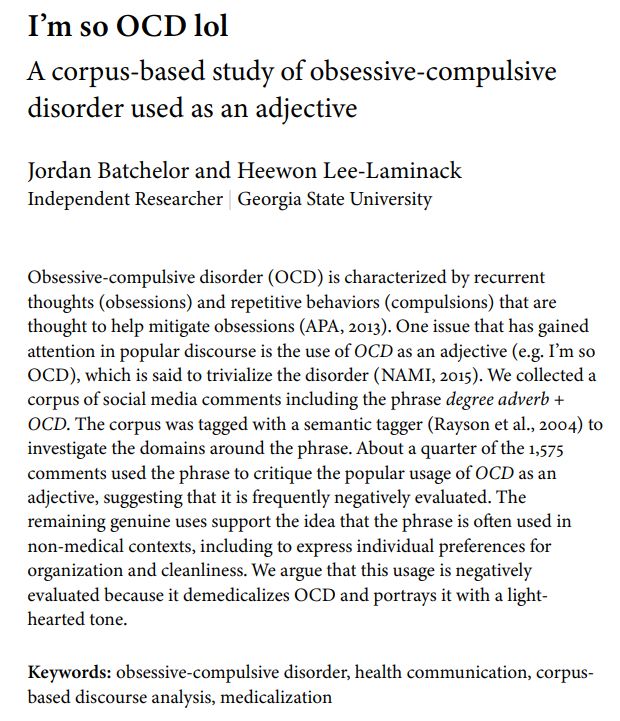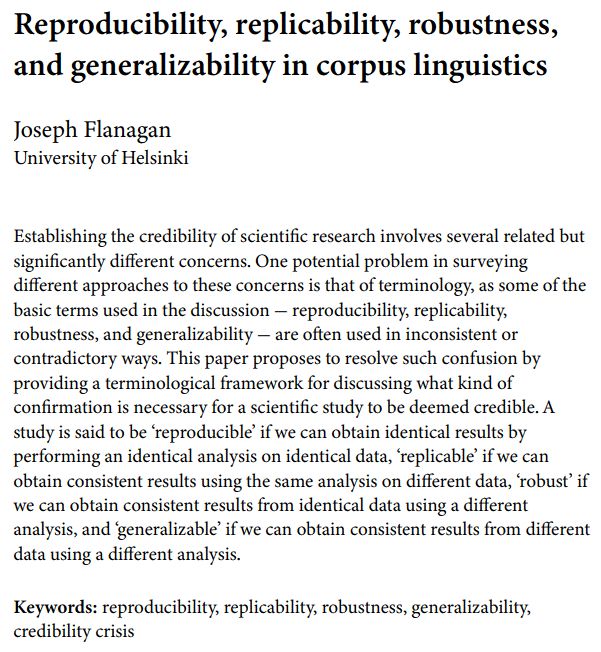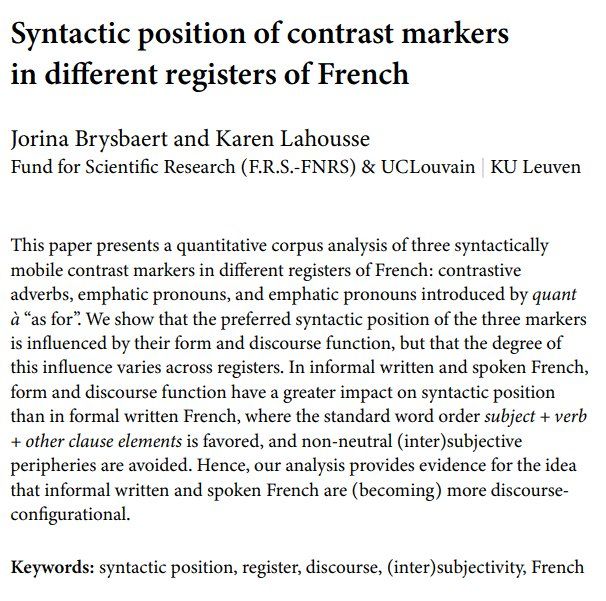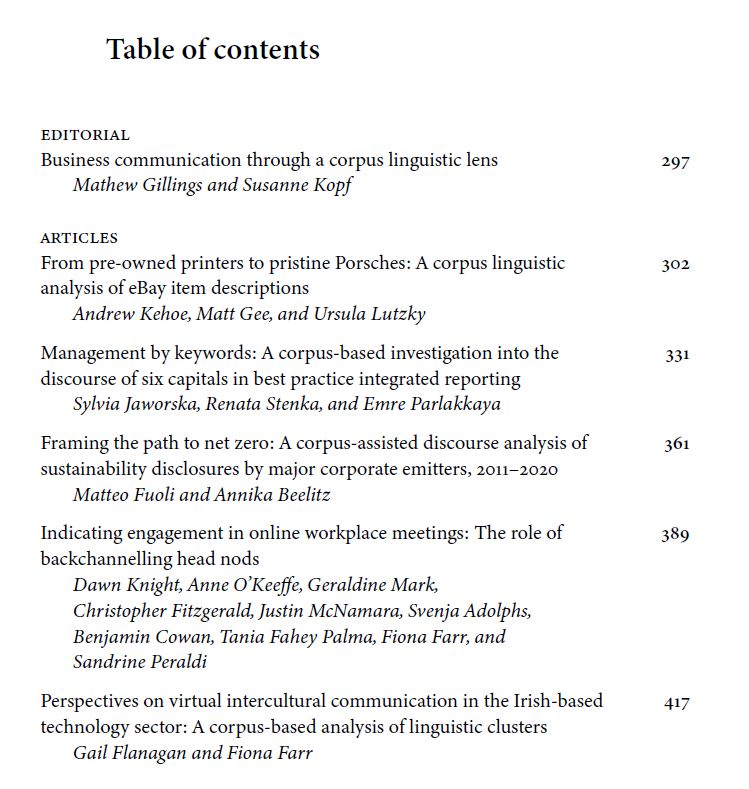IJCL
@ijcl.bsky.social
160 followers
5 following
23 posts
International Journal of Corpus Linguistics
https://benjamins.com/catalog/ijcl
Posts
Media
Videos
Starter Packs
Pinned
IJCL
@ijcl.bsky.social
· 16d
Using machine learning to automate data annotation in corpus linguistics | John Benjamins
Abstract
A wealth of linguistic data has been annotated by corpus linguists, and this extant annotated data can be used to
automatically replicate and apply the linguist’s annotation scheme by means o...
doi.org
IJCL
@ijcl.bsky.social
· 26d
Achieving stability in corpus-based analysis of word types | John Benjamins
Abstract
Rank-ordered lists of word types are ubiquitous in corpus linguistics and applied linguistics. Word lists are
commonly developed as aids for language teaching and learning, vocabulary testing...
doi.org
IJCL
@ijcl.bsky.social
· 26d
IJCL
@ijcl.bsky.social
· 26d
Evaluating a transparent and interpretable approach to stance detection using linguistic markers in social media
data | John Benjamins
Abstract
Our study focuses on replicability, which entails researchers’ ability to achieve similar results to a prior study
using identical methods but a different yet comparable dataset. We address t...
eur02.safelinks.protection.outlook.com
IJCL
@ijcl.bsky.social
· 28d
IJCL
@ijcl.bsky.social
· Aug 19
Examining contextual constraints on the English dative alternation in L2 written production | John Benjamins
Abstract
This study examines how contextual factors influence the English dative alternation in written production by Chinese EFL learners, with native English usage serving as the benchmark for compa...
doi.org
IJCL
@ijcl.bsky.social
· Aug 19
Interactive metadiscourse across languages and writer groups | John Benjamins
Abstract
Although English has become a lingua franca for academic publication, a growing number of multilingual scholars
prefer to publish in both English and their first languages. This corpus-based ...
doi.org
IJCL
@ijcl.bsky.social
· Jul 15
Review of Landert (2024): Methods in Historical Corpus Pragmatics: Epistemic Stance in Early Modern English | John Benjamins
Welcome to e-content platform of John Benjamins Publishing Company. Here you can find all of our electronic books and journals, for purchase and download or subscriber access.
doi.org
IJCL
@ijcl.bsky.social
· Jul 7
Review of Gries (2024): Frequency, Dispersion, Association, and Keyness: Revising and tupleizing corpus-linguistic measures | John Benjamins
Welcome to e-content platform of John Benjamins Publishing Company. Here you can find all of our electronic books and journals, for purchase and download or subscriber access.
doi.org
IJCL
@ijcl.bsky.social
· Jul 7
Review of Stoltz & Taylor (2024): Mapping texts: Computational text analysis for the social sciences | John Benjamins
Welcome to e-content platform of John Benjamins Publishing Company. Here you can find all of our electronic books and journals, for purchase and download or subscriber access.
doi.org
IJCL
@ijcl.bsky.social
· Jul 4
Adverb placement in L1 and L2 spoken production | John Benjamins
Abstract
Most existing research on adverb placement has focused exclusively on writing. This is unfortunate, given that the
spoken mode offers limited opportunity for pre-planning and post-editing and...
doi.org
IJCL
@ijcl.bsky.social
· Jul 4
Reproducibility, replicability, and robustness in corpus linguistics | John Benjamins
Abstract
This introduction to the special issue Reproducibility, Replicability, and Robustness in Corpus
Linguistics calls for more transparent and robust research practices in the field. It situates ...
doi.org
Reposted by IJCL
